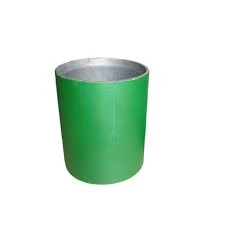- Afrikaans
- Albanian
- Amharic
- Arabic
- Armenian
- Azerbaijani
- Basque
- Belarusian
- Bengali
- Bosnian
- Bulgarian
- Catalan
- Cebuano
- Corsican
- Croatian
- Czech
- Danish
- Dutch
- English
- Esperanto
- Estonian
- Finnish
- French
- Frisian
- Galician
- Georgian
- German
- Greek
- Gujarati
- Haitian Creole
- hausa
- hawaiian
- Hebrew
- Hindi
- Miao
- Hungarian
- Icelandic
- igbo
- Indonesian
- irish
- Italian
- Japanese
- Javanese
- Kannada
- kazakh
- Khmer
- Rwandese
- Korean
- Kurdish
- Kyrgyz
- Lao
- Latin
- Latvian
- Lithuanian
- Luxembourgish
- Macedonian
- Malgashi
- Malay
- Malayalam
- Maltese
- Maori
- Marathi
- Mongolian
- Myanmar
- Nepali
- Norwegian
- Norwegian
- Occitan
- Pashto
- Persian
- Polish
- Portuguese
- Punjabi
- Romanian
- Russian
- Samoan
- Scottish Gaelic
- Serbian
- Sesotho
- Shona
- Sindhi
- Sinhala
- Slovak
- Slovenian
- Somali
- Spanish
- Sundanese
- Swahili
- Swedish
- Tagalog
- Tajik
- Tamil
- Tatar
- Telugu
- Thai
- Turkish
- Turkmen
- Ukrainian
- Urdu
- Uighur
- Uzbek
- Vietnamese
- Welsh
- Bantu
- Yiddish
- Yoruba
- Zulu
seamless pipe
The Importance and Applications of Seamless Pipes
Seamless pipes are an essential component in various industries, known for their strength, durability, and ability to withstand extreme conditions. Unlike welded pipes, seamless pipes are manufactured from a solid round steel billet, which is heated and then molded into the desired shape without the use of seams. This process enhances their structural integrity and reduces the risk of failure under high pressure or temperature conditions.
Manufacturing Process
The manufacturing of seamless pipes involves several steps that ensure the highest quality. The first step is the heating of the steel billet, which is then pierced to create a hollow tube. This hollow tube is subsequently elongated through a series of processes such as rotary piercing and elongation, finally resulting in the desired diameter and length. After formation, the pipes undergo heat treatment and finishing processes to enhance their mechanical properties. The absence of seams minimizes the risk of leakage, making seamless pipes ideal for high-pressure applications.
Advantages of Seamless Pipes
1. Strength and Durability Seamless pipes are known for their ability to withstand high levels of stress and pressure due to their uniform structure. Without welded joints that may be weak points, these pipes provide superior strength and resistance to cracking.
3. Versatility Seamless pipes come in various sizes, materials, and thicknesses, allowing them to be used in a wide range of applications including structural, mechanical, and fluid transportation needs.
4. Reduced Maintenance The durability of seamless pipes often leads to lower maintenance costs over time. Fewer joint welds mean less risk of failure, reducing the need for regular inspections and repairs.
seamless pipe

Applications in Various Industries
Seamless pipes have numerous applications across different sectors
- Oil and Gas In the oil and gas industry, seamless pipes are extensively used for transporting oil and gas over long distances. They are also used in drilling and exploration activities due to their ability to withstand extreme conditions.
- Construction Seamless pipes are used in construction for structural purposes. Their strength makes them an ideal choice for high-rise buildings and bridges.
- Automotive In the automotive industry, seamless pipes are used for manufacturing exhaust systems and other structural components, providing weight savings and strength.
- Chemical and Petrochemical The chemical industry often requires pipes that can withstand corrosive environments. Seamless pipes are commonly used in chemical processing plants for transporting various fluids safely.
- Power Generation Seamless pipes are used in power plants, where they transport steam and fluids at high temperatures and pressures, making them vital for efficient energy production.
Conclusion
Seamless pipes play a crucial role in modern infrastructure and industrial applications. Their unique manufacturing process gives them advantages over welded pipes, including enhanced strength, corrosion resistance, and versatility. As industries continue to evolve and demand higher performance materials, the importance of seamless pipes will only grow. By understanding their benefits and applications, manufacturers and engineers can make informed choices that enhance the safety and efficiency of their projects. Seamless pipes are not just a product; they are a cornerstone of modern engineering that ensures safety, reliability, and innovation across various sectors.
-
Tubing Pup Joints: Essential Components for Oil and Gas OperationsNewsJul.10,2025
-
Pup Joints: Essential Components for Reliable Drilling OperationsNewsJul.10,2025
-
Pipe Couplings: Connecting Your World EfficientlyNewsJul.10,2025
-
Mastering Oilfield Operations with Quality Tubing and CasingNewsJul.10,2025
-
High-Quality Casing Couplings for Every NeedNewsJul.10,2025
-
Boost Your Drilling Efficiency with Premium Crossover Tools & Seating NipplesNewsJul.10,2025







